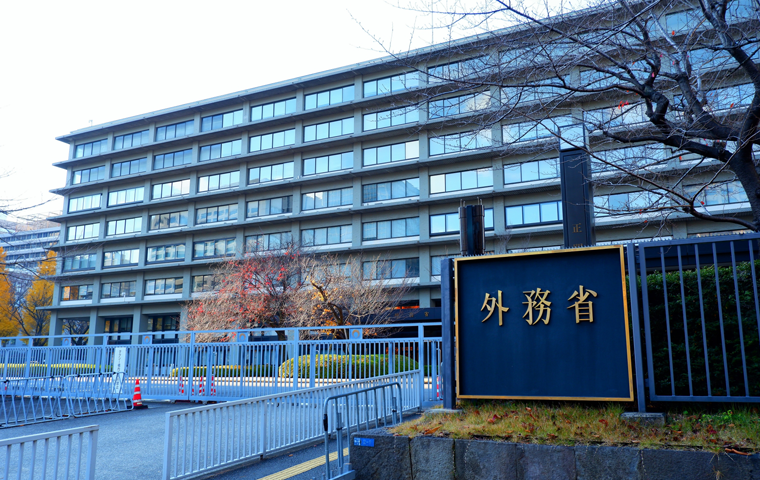The Abyss of “Dark Part-Time Jobs”: A Rescue Across Borders
Related Articles
Rescued from the Shadows: Japanese Teen Freed from Myanmar Scam Compound

On February 15, 2025, news flashed across the world: a Japanese teenage boy had been rescued from the depths of Southeast Asia’s criminal underworld. The 17-year-old was freed from a fraud compound in Myanmar’s border region, operated by an international cyber scam organization. According to authorities, he had been lured to Myanmar by a Japanese man and forced to participate in fraud schemes once there.
The case turned out to be only the tip of the iceberg. Following this dramatic rescue, reports surfaced of multiple other Japanese nationals trapped in similar conditions. Japan’s Ministry of Foreign Affairs confirmed that seven Japanese citizens had been detained or rescued near Myanmar’s borders—six have already returned home. Two more Japanese men, aged 22 and 31, were also detained by Thai authorities after rescue requests were issued for them—they too had been held in the same fraud compounds.
What this chain of events exposed was the criminal organizations’ calculated manipulation of moral boundaries: blurring the line between victims and perpetrators. Investigators are still determining whether those rescued were trafficking victims or willing participants. The truth, however, defies such simple categories. The two men reportedly traveled to Myanmar “for the money,” yet were beaten with electric shocks, threatened, and never paid.
This shows the structure of a deliberate trap—organizations lure recruits with financial promises, then enslave them with violence and fear once inside. Those who become both victims and offenders are trapped in silence, afraid to seek help, which complicates intervention by police or diplomats. These syndicates exploit such psychological shackles to maintain a supply of cheap, disposable labor—a cruel and profitable business model built on coercion and control.
Traps on Social Media: How “High Pay” Ads Lure Japan’s Youth
The tragedies of young people trapped in Myanmar’s jungle often begin in ordinary Japanese life—specifically, on a smartphone screen. Criminal networks use major social media platforms such as X (formerly Twitter) and Instagram to prey on emotional and economic vulnerabilities.
They post enticing offers like “high pay,” “instant cash,” or supposedly safe “white-collar jobs,” masking their criminal nature. These ads attract those struggling financially or seeking easy money. The roles presented—“just receive a package” (money mule) or “just make calls” (scam caller)—appear harmless.
Once contact is made, recruiters immediately move communication to encrypted apps like Telegram or Signal. This both hides their tracks from law enforcement and psychologically isolates recruits from the outside world. Before explaining the job, applicants are asked to provide “registration documents”—copies of photo IDs (driver’s license, student card), home address, family information, and even videos showing their route from their apartment entrance to their room.
That submission marks the point of no return. Once in possession of personal data, the organization reveals the job’s true nature—fraud, robbery, or worse. When the applicant tries to back out, threats begin: “We know everything about you,” “Your family will be hurt.” Some are even shown videos of real violence to instill fear.
By the time physical confinement begins, victims are already digitally imprisoned—their fear weaponized against them. These “dark part-time jobs” are no longer mere scams; they constitute a modern digital slavery system, a form of human trafficking that systematically destroys human dignity under the guise of employment.
Lawless Borderlands: Why Myanmar Became a Criminal Haven
The digital traps that ensnare Japan’s youth often lead to physical captivity in areas beyond state control. Fraud compounds cluster in Myanmar’s Karen and Shan States, bordering Thailand and China. These regions lie outside the reach of Myanmar’s central government, controlled instead by ethnic armed organizations (EAOs) and affiliated border guard forces (BGFs).
International crime syndicates—mainly Chinese-led—have exploited these power vacuums, forging symbiotic relationships with local militias. In exchange for armed protection and extrajudicial freedom, the militias receive a share of criminal profits. As de facto local authorities, they make regular law enforcement impossible.
The 2021 military coup deepened the chaos, plunging Myanmar into civil war and diverting the army’s attention to fighting pro-democracy forces and ethnic insurgents. Central authority weakened even further in border regions, giving criminal networks unprecedented freedom to operate. Ongoing conflict now hampers rescue efforts and repatriations.
This pattern isn’t unique to Myanmar. As Cambodia and other countries tightened crackdowns, syndicates relocated their operations to Myanmar’s ungoverned zones—forming a regional crime ecosystem. Some compounds reportedly imprison thousands of people, forcing them to run scams in multiple Asian languages. These vast “fraud factories” reveal that the issue is not petty crime but part of a war economy born from conflict and state collapse.
To eradicate these hubs will require not only policing but also tackling Myanmar’s entrenched political and military strife—a challenge that reaches far beyond law enforcement.
Fighting Borderless Crime: Global Cooperation and Personal Defense

Japan’s government is intensifying its response to this transnational threat. The Foreign Ministry and National Police Agency repeatedly issue warnings about ads promising “high pay for short-term overseas work.” Their message is clear: “dark part-time jobs” are not jobs at all, and applicants are nothing more than disposable pawns for criminal enterprises.
Authorities urge citizens who become involved to seek help immediately—from Japanese embassies or consulates abroad, or via the domestic #9110 police hotline. Yet institutional limits persist. Criminal groups move across borders freely and operate through cyberspace, while law enforcement remains bound by national jurisdictions.
In unstable countries like Myanmar, with fragmented local power structures, rescue and investigation depend on delicate diplomacy and local cooperation—success is never guaranteed. Consequently, prevention has become the core strategy.
The foundation of that prevention lies in public awareness. Society must reaffirm the simple truth: “There is no such thing as easy, quick, high-paying work.” When suspicious offers appear, consulting family or police rather than deciding alone is the most effective safeguard.
That the government now urges citizens to protect themselves underscores a sobering reality: modern states are not omnipotent guardians against globalized, tech-enabled crime. The rescue on Myanmar’s border is not a distant tragedy—it begins in the smartphones in our hands. Ultimately, the final line of defense lies in each person’s judgment and vigilance.
In this asymmetrical fight, the international community must share knowledge and build a safety net to protect vulnerable youth. The rescue in Myanmar serves as both a warning and a call to action—to confront the digital age’s most insidious form of exploitation before more lives vanish into the shadows.



